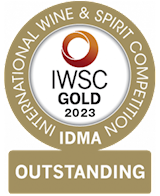Best Vojvodinian Foods
Petrovački kulen is a traditional sausage originating from Bački Petrovac, hence the name. The sausage is made from pork, and the only additions include hot paprika and salt. However, some producers still use garlic and cumin in the production process.
A whole pig is commonly used to produce Petrovački kulen, usually with a ratio of 80% meat to 20% back fat. This meat product has a strong Slovakian culinary influence because they moved to Petrovac in the late 18th century. It's recommended to serve this spicy sausage sliced and paired with homemade bread and local cheese.
OTHER VARIATIONS OF Kulen
MAIN INGREDIENTS
Pörkölt is Hungary's national stew, its name derived from the word pörkölni, meaning to roast or singe. The stew is made from meat such as beef, lamb, pork, or chicken, simmered in a red sauce with lots of onions, garlic, and paprika powder.
It is traditionally served with dumplings, boiled potatoes, or pasta, and it is recommended to pair it with a Hungarian fruit brandy. Pörkölt's history is closely linked to the traditional Hungarian goulash, as both dishes were originally prepared as peasant meals that made hefty use of powdered paprika.
VARIATIONS OF Perkelt
Gomboce or knedle sa šljivama are plum-filled dumplings consumed throughout the Balkans, especially in Serbia and Croatia. The dough is made with potatoes, eggs, and flour. The potatoes should be cooked in their own skin, peeled, then mashed before they are combined with other ingredients.
Once prepared, the dough is rolled and plums are placed in the middle of each square, which is then assembled into a dumpling. These dumplings are boiled, then rolled in a combination of breadcrumbs, sugar, and (optionally) butter for the best experience.
Sremska salama is a cold-smoked Serbian sausage that originates from the area of Srem. It is traditionally made with a combination of ground pork, beef, and pork back bacon. Typical flavorings include salt, black pepper, paprika (both mild and hot), and garlic, although ginger, nutmeg, and cardamom are also traditionally used.
The seasoned ground meat mixture is usually stuffed into natural casings (clean pork intestines), and the sausages then go through a process of cold-smoking, drying, and aging, which typically lasts for 42 days. This traditional sausage is usually enjoyed thinly sliced as a meze dish, a cold appetizer, or a savory snack.
MAIN INGREDIENTS
Fiš paprikaš (or hal paprikas in Hungary, with the addition of sour cream) is a traditional stew cooked in a big cauldron over an open fire. This spicy fish stew is traditionally made with a variety of freshwater fish such as catfish, starlet, pike, and carp.
The stew is heavily flavored with large amounts of the region's staple – ground red paprika, which can range from mild to very hot. Fiš paprikaš is often served with homemade noodles, and it is so popular in the region that there are numerous fiš cooking competitions organized throughout the year.
MAIN INGREDIENTS
The simple and nutritious nudle s mákem is a dish consisting of wide, thin wheat pasta that is doused in copious amounts of melted butter, and then dusted with poppy seeds and sugar. Once considered a rich and luscious meal, today it represents a frugal, but a beloved dish that is enjoyed as a sweet main course or a filling dessert.
Even though it is usually associated with the Czech Republic, the exact origin of the dish is still unknown, while similar varieties are found in many Central and Eastern European countries under various names. In Austria, a similar dish is known as mohnnudeln, prepared with thick and short potato noodles, while the Serbian version from Vojvodina is called rezanci s makom.
Futoška sarma is a traditional type of sarma originating from Futog in Vojvodina, hence the name. The dish is made with a combination of local Futog cabbage, pork, rice, onions, eggs, garlic, paprika powder, bacon, sausages, and dried meat.
The cabbage leaves are stuffed with a mix of ground meat, garlic, rice, onions, and spices. Once assembled, the sarma is cooked for a long time with dried meat, bacon, and sausages. Near the end of cooking, a combination of flour, oil, garlic, and paprika known as zaprška is added to the dish for a better flavor and a thicker texture of the sauce.
MAIN INGREDIENTS
Pašteta od fazana is a Croatian dish that is especially popular in the region of Slavonija and Baranja. This pâté is made with pheasant as the key ingredient, and due to the fact that every household has their own recipe, other ingredients may vary, but may include celery, carrots, parsley, onions, bay leaves, pepper, garlic, eggs, butter, mayonnaise, mustard, and horseradish.
The pheasant is cooked with the vegetables, and it is then ground and combined with other ingredients. The pâté is then refrigerated until it sets, and it is recommended to serve it with crusty bread.
MAIN INGREDIENTS
Vojvođanski koh or koh od griza is a simple, rustic cake made with eggs, sugar, semolina, milk, and vanilla sugar. It consists of two components: a sponge cake and sweetened boiled milk, which is poured over the sponge while both are still hot.
Recipes do vary in either the ingredients or preparation method. For example, some will have both semolina and flour in the sponge, while others will also have custard on top of the sponge. Vojvođanski koh should be served well chilled, perhaps with some fruit on the side.
Herovke are traditional sweet treats from Vojvodina, and they are especially popular in the region's Slovak community. They are made with flour, sugar, egg yolks, salt, sour cream, and rakija (local schnapps). The dough shouldn't be too hard nor too soft.
It is rolled thinly and cut into strips. The strips are rolled into small balls, and they are then placed inside a special tool (a long spoon with a rounded, pierced top part, which can be opened) before being deep-fried in hot oil until golden brown and crispy.
Best Vojvodinian Food Producers
AWARDS

IWSC- International wine & spirit competition - Spirit Gold
2024, 2023

IWSC- International wine & spirit competition - Spirit Gold Outstanding
2023

IWSC- International wine & spirit competition - Brandy Gold Trophy
2023
BEST Podrum Palic 1896 Spirits
AWARDS

IWSC- International wine & spirit competition - Spirit Gold
2020
BEST Vitin Fruits Spirits
AWARDS

Academy of Chocolate - Bronze
2019
BEST Réel Chocolate Chocolates
Best Vojvodinian Food Products
AWARDS

IWSC- International wine & spirit competition - Spirit Gold Outstanding
2023

IWSC- International wine & spirit competition - Brandy Gold Trophy
2023
AWARDS

Decanter World Wine Awards - Best in Show
2023
AWARDS

World Gin Awards - Country Winner
2022
AWARDS

IWSC- International wine & spirit competition - Spirit Gold
2024, 2023
AWARDS

IWSC- International wine & spirit competition - Spirit Gold
2024
AWARDS

IWSC- International wine & spirit competition - Spirit Gold
2023
AWARDS

IWSC- International wine & spirit competition - Spirit Gold
2020
AWARDS

Decanter World Wine Awards - Platinum
2020
AWARDS

Academy of Chocolate - Bronze
2019
TasteAtlas food rankings are based on the ratings of the TasteAtlas audience, with a series of mechanisms that recognize real users and that ignore bot, nationalist or local patriotic ratings, and give additional value to the ratings of users that the system recognizes as knowledgeable. TasteAtlas Rankings should not be seen as the final global conclusion about food. Their purpose is to promote excellent local foods, instill pride in traditional dishes, and arouse curiosity about dishes you haven’t tried.








